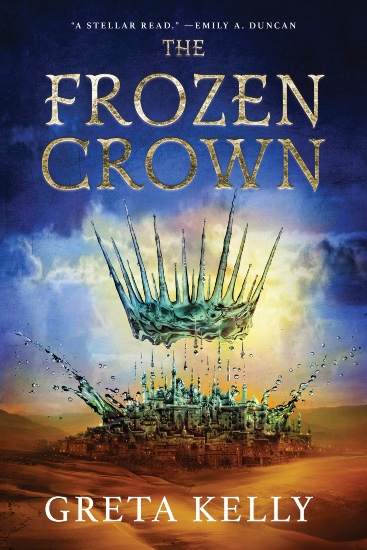Judging by my Twitter feed, I’m not the only one who fell down a major Critical Role rabbit hole this year. I tore my way through both campaigns while I sat at home juggling writing deadlines and a new baby. Bleary-eyed, I watched that motley crew of voice actors adventure their way through not one, but two years-long Dungeons & Dragons campaigns. It wasn’t wasted time, I assured myself (and my increasingly confused husband.) There is value in watching an RPG game like D&D. Just as there is value in playing them — especially for the writers in the crowd.
Sure it was an off-the-cuff justification at the time, but you know what? I’m sticking to my guns. Watching and playing RPG’s (role-playing games, for the uninitiated) can help you hone your writing chops. And the best part? You’ll be having so much fun, you might not even realise you’re learning something. How you ask? Keep reading for my top three ways to improve your craft by playing D&D.
[referenced id=”1659606″ url=”https://gizmodo.com.au/2020/12/the-adventure-zone-bureau-of-balance-is-a-fantastic-gateway-to-roleplaying-games/” thumb=”https://gizmodo.com.au/wp-content/uploads/2020/12/19/tm0tcsovnsnrbykb2dwr-300×169.jpg” title=”The Adventure Zone: Bureau of Balance Is a Fantastic Gateway to Roleplaying Games” excerpt=”Way up in the stars, there’s a secret moon base called the Bureau of Balance. It’s a place where anything can happen — including a visit to a Fantasy Costco. It’s here that we set the stage for The Adventure Zone: Bureau of Balance, a card and board game that…”]
They Grow Up So Fast
One of the true joys of D&D is just how unpredictable everything is. Unlike writing your own story, where you’re alone in the sandbox making castles and then destroying them, in D&D you only have control of your character. You come into the game knowing what your character likes and dislikes, what they’ve endured and what they want — but that’s all. What your party does, the choices they make — not to mention the baggage they bring to the game, is completely out of your control. Add to that the choices the DM makes for the story as a whole, and you’ll quickly find your character growing and changing in ways that you never expected. It’s a case of art imitating life. Your friends (and enemies) change you, and they will change your character too.
What about those dice rolls? In the age of Instagram, where everyone always wants to put their best foot forward, exposing failure can be uncomfortable for new players (and writers). We want our characters to be perfect, super-human even. But the dice giveth, and the dice taketh away, my friends. So don’t shy away from the failures, whether they occur in-game or on the page. Because what your character does when faced with hardship is what makes them compelling!
It’s All About That Voice
New writers are often told that they should stick with one point of view character. And for good reason. It takes a lot of time to learn how to hone your voice — and learn how to create distinct ticks and mannerisms for your characters. It’s yet another reason why D&D can be so valuable to writers. When you’re alone with your computer, it’s easy to forget that all of your characters have their own individual motivations. But that very fact is impossible to forget when you’re playing D&D.
Your party doesn’t need to be filled with amazing voice actors to instantly see how each member brings their own special something to their character. I play an RPG with one of my brothers, and let me tell you, even people you’ve known your whole life can surprise you. (You know what you did, Karl.) So hop into a game and take notes, because your fellow adventurers will make choices and come to conclusions that will amaze you — not to mention take the story down avenues you never imagined.
[referenced id=”1527192″ url=”https://gizmodo.com.au/2020/11/meet-some-of-dds-fanciful-new-patrons-your-adventurers-could-work-for/” thumb=”https://gizmodo.com.au/wp-content/uploads/2020/11/07/uqfvztlvxxlxz4ploiqm-e1604871927577-300×152.png” title=”Meet Some of D&D’s Fanciful New Patrons Your Adventurers Could Work For” excerpt=”Look at this merfolk. Look how regal he is. His mer-money? Adventurers, it could be yours.”]
Follow Those Breadcrumbs
This is where an experienced DM really shines. A well-rounded D&D campaign, one which focuses as much on storytelling as it does game mechanics and dungeon crawls, is like an MFA program in long-form storytelling.
Take Critical Role, for example. Over the course of a campaign, DM Matthew Mercer is skilled at bringing back characters from early on in the game — and not just to cater to fans. These interactions show how a seemingly insignificant character can play a major part in future storylines. How those characters changed from interactions with the players, can also be surprising.
If you add to that how he uses clues, foreshadowing, and even the occasional red-herring, you’ll see how to create a meaningful story arc over many installments — not so much different than plotting a novel. And you can learn it all from the comfort of your own living room.
Who said learning had to be a chore?

Greta Kelly’s debut novel, The Frozen Crown, is out January 12 from Harper Voyager.
[referenced id=”1626357″ url=”https://gizmodo.com.au/2020/12/dungeons-dragons-novels-revisiting-vampire-of-the-mists/” thumb=”https://gizmodo.com.au/wp-content/uploads/2020/12/03/yudgkllyklfkfqk7q8dt-300×176.jpg” title=”Dungeons & Dragons & Novels: Revisiting Vampire of the Mists” excerpt=”Welcome to Ravenloft, boils and ghouls! Where it’s always a dark and stormy night, where monsters are always under your bed, and your blood always curdles in horror — right before a vampire sucks it out. So what the hell is a gold elf from the Forgotten Realms doing here?…”]
